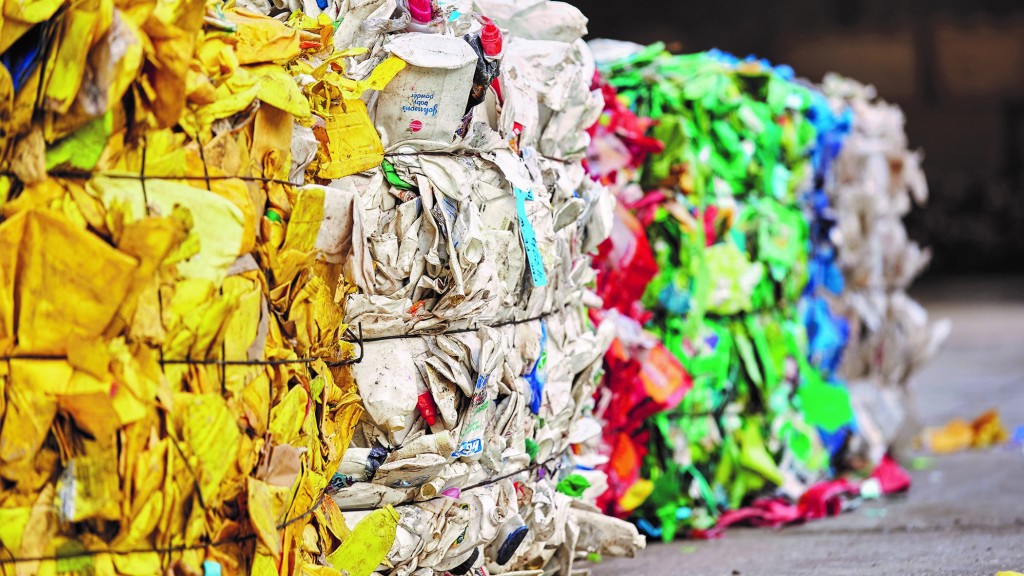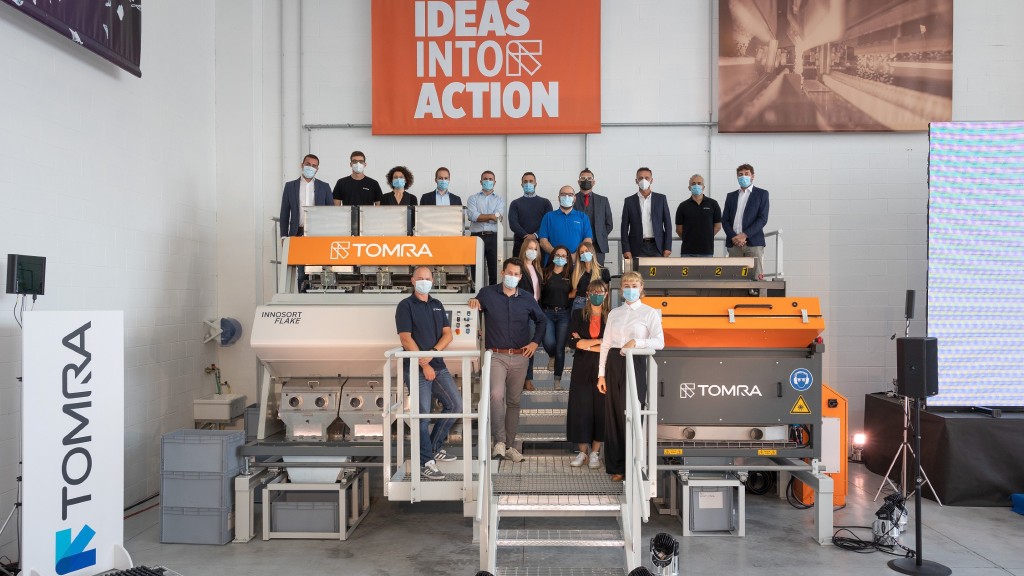
Despite the ongoing battle against plastic pollution, its rate continues to rise on a global scale. The latest figures suggest more than 359 million tons of plastic were produced for the global marketplace in 2018, a 3.2 percent increase compared to the previous year. In total, the amount of plastic produced globally has approximately tripled since 1990.
The majority of this plastic doesn't have a long-term future. In Europe, almost 40 percent of plastic produced is used for food and product packaging which, in most cases, is single-use plastic. Most of these products are being incinerated or disposed of in landfills. This, coupled with the fact that more than a million plastic bottles are sold every minute worldwide, means that there is more pressure on plastic producers and retailers than ever before.
With this rise in throughput comes the need for more efficient recycling systems to ensure all material is handled correctly, as a valuable resource, and brought back into the plastics loop. There's also a need for higher purity when it comes to recycled plastics to ensure the material meets increasingly rigid regulations. Recycled content laws in the EU, for example, introduced in October 2018, mean that producers must now ensure plastic bottles have a minimum of 25 percent recycled content by 2025. This also means plant operators need to enable systems that can increase the purity and yield of their recycled plastic output to a very high level - high enough to be suitable for re-use in food-grade packaging. The European goal is also to boost the EU market for recycled plastics up to 10 million tonnes by 2025.
Flake sorting is key for recyclers to meet demand
One way in which recycling plant operators can improve the purity and yield of the plastics they recycle is through flake sorting. This can help improve the output quality of the recycling process and also allow for more types of plastic to be efficiently sorted. This helps recycled material to be re-integrated into the plastics value chain, and is a key factor in reaching the higher recycling targets set forth by the European Union, North America and other regions.
Currently, in the EU, there is a high demand for polyolefins, but recycling levels are still very low. Polyolefins is the collective name for materials which include polyethylene (PE) and polypropylene (PP), including different variations of the basic polymers, such as high-density polyethylene (HDPE) and low-density polyethylene (LDPE). Although the market for high quality and pure recyclates has been traditionally more focused on PET, the recent demand for recycled polyolefins signals its importance for the market and the need to recycle these materials efficiently.
In order to do this, and further accelerate recycling rates and output quality overall, plant operators can rely on flake sorting: a technology that has already been very successfully used in PET recycling plants to upgrade plastics.
The flake sorting process for PET bottles consists of various steps: after a first step of pre-sorting, rejecting impurities both by colour and material type, there is a washing process. Bottles are then put into a grinder or shredder and are turned into flakes. Once bottles have been shredded, the resulting flakes still contain high amounts of PP/PE (mostly from bottle caps), as well as pieces of metal, PVC from remaining labels, and small quantities of other contaminants. Flakes then go through a vigorous cleaning process which involves different combinations of metal separators, sieves and air separators (aka wind-sifters) and then separation by flotation, hot and cold washing, rinsing and drying, all of which reduce overall contamination.
Even though this process is very effective, small amounts of contaminants are able to survive the process due to their size, density or magnetic characteristics. These small impurities and colour deviations can negatively affect recyclate, which is subsequently used to make new PET beverage bottles. Therefore, sorting out all impurities to generate PET granulates that have the same quality as primary plastics should be the target. A high-technology, sensor-based flake sorting solution is necessary to purify shredded plastic up to required standards and to remove any leftover contaminants. Thanks to these very precise machines, extremely high levels of purity can be achieved.
The importance of pre-sorting
The implementation of a flake sorting machine alone will not greatly help improve the overall yield and purity of recycled materials, unless it is part of a carefully integrated system.
To achieve the highest purities, operators need to have a system which integrates pre-sorting and flake sorting. Pre-sorting allows plastic bottles to not only be separated from other types of plastic, but also by colour of the material. A precise pre-sorting process is an important step, because it reduces the bulk of colour and material contamination. So when resulting bottles are shredded and turned into flakes, the amount of remaining contamination is manageable by the highly sensitive sensors of the flake sorter, which excel in detecting and removing the small contaminant particles generated during the shredding process.
It should also be noted that by using one supplier for both machines - pre-sorting and flake sorting - higher levels of accuracy can be achieved, as the solutions are built to work in unison. With machines from the same supplier, a streamlined, one-stop service and maintenance solution can also be achieved, which means less downtime and increased overall capacity.
In addition, an efficient pre-sorting process prior to flake sorting can help reduce the need for manual sorting, as the technology can remove any non-usable materials. This in turn supports decreased operational costs, and human resources can be used elsewhere within the recycling plant.
Using this kind of integrated approach, plant operators can expect numerous improvements in their plastics recycling operations - both operationally and financially - and will be able to meet the demand for highly pure plastics recyclate.
Tom Eng is senior VP and head of TOMRA Recycling.
This article first appeared in the November / December 2021 issue of Recycling Product News, Volume 29, Number 8.



